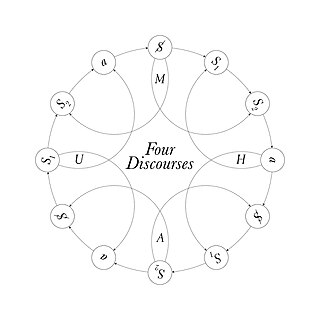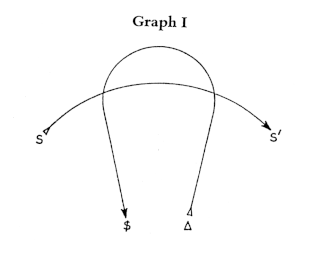 W
WThe Cassandra metaphor relates to a person whose valid warnings or concerns are disbelieved by others.
 W
WIn classical Freudian psychoanalytic theory, the death drive is the drive toward death and destruction, often expressed through behaviors such as aggression, repetition compulsion, and self-destructiveness. It was originally proposed by Sabina Spielrein in her paper "Destruction as the Cause of Coming Into Being" in 1912, which was then taken up by Sigmund Freud in 1920 in Beyond the Pleasure Principle. This concept has been translated as "opposition between the ego or death instincts and the sexual or life instincts". In Pleasure Principle, Freud used the plural "death drives" (Todestriebe) much more frequently than the singular.
 W
WIn psychoanalytic theory, a defence mechanism, is an unconscious psychological operation that functions to protect a person from anxiety-producing thoughts and feelings related to internal conflicts and outer stressors.
 W
WDelayed gratification, or deferred gratification, is the resistance to the temptation of an immediate pleasure in the hope of obtaining a valuable and long-lasting reward in the long-term. In other words, delayed gratification describes the process that the subject undergoes when the subject resists the temptation of an immediate reward in preference for a later reward. Generally, delayed gratification is associated with resisting a smaller but more immediate reward in order to receive a larger or more enduring reward later. A growing body of literature has linked the ability to delay gratification to a host of other positive outcomes, including academic success, physical health, psychological health, and social competence.
 W
WIn neo-Freudian psychology, the Electra complex, as proposed by Sigmund Freud in his Theory of Psychoanalysis, is a girl's psychosexual competition with her mother for possession of her father. In the course of her psychosexual development, the complex is the girl's phallic stage; a boy's analogous experience is the Oedipus complex. The Electra complex occurs in the third—phallic stage —of five psychosexual development stages: the oral, the anal, the phallic, the latent, and the genital—in which the source of libido pleasure is in a different erogenous zone of the infant's body.
 W
WEros is a concept in ancient Greek philosophy referring to sensual or passionate love, from which the term erotic is derived. Eros has also been used in philosophy and psychology in a much wider sense, almost as an equivalent to "life energy". Protestant author C. S. Lewis posits it as one of the four ancient Greek words for love in Christianity, alongside storge, philia, and agape.
 W
WForeclosure is the English translation of a term that the French psychoanalyst Jacques Lacan introduced into psychoanalysis to identify a specific psychical cause for psychosis.
 W
WFour discourses is a concept developed by French psychoanalyst Jacques Lacan. He argued that there were four fundamental types of discourse. He defined four discourses, which he called Master, University, Hysteric and Analyst, and suggested that these relate dynamically to one another.
 W
WIn psychoanalysis, a Freudian slip, also called parapraxis, is an error in speech, memory, or physical action that occurs due to the interference of an unconscious subdued wish or internal train of thought. Classical examples involve slips of the tongue, but psychoanalytic theory also embraces misreadings, mishearings, mistypings, temporary forgettings, and the mislaying and losing of objects.
 W
WIn critical theory, sociology, and psychoanalysis, the gaze, in the philosophical and figurative sense, is an individual's awareness and perception of other individuals, other groups, or oneself. The concept and the social applications of the gaze have been defined and explained by existentialist and phenomenologist philosophers. Jean-Paul Sartre described the gaze in Being and Nothingness (1943). Michel Foucault, in Discipline and Punish: The Birth of the Prison (1975), developed the concept of the gaze to illustrate the dynamics of socio-political power relations and the social dynamics of society's mechanisms of discipline. Jacques Derrida, in The Animal that Therefore I Am (1997), elaborated upon the inter-species relations that exist among human beings and other animals, which are established by way of the gaze.
 W
WThe graph of desire is a conceptual tool from the psychoanalytic theory of Jacques Lacan.
 W
WThe id, ego, and super-ego are a set of three concepts in psychoanalytic theory describing distinct, interacting agents in the psychic apparatus. The three agents are theoretical constructs that describe the activities and interactions of the mental life of a person. In the ego psychology model of the psyche, the id is the set of uncoordinated instinctual desires; the super-ego plays the critical and moralizing role; and the ego is the organized, realistic agent that mediates, between the instinctual desires of the id and the critical super-ego; Freud explained that:The functional importance of the ego is manifested in the fact that, normally, control over the approaches to motility devolves upon it. Thus, in its relation to the id, [the ego] is like a man on horseback, who has to hold in check the superior strength of the horse; with this difference, that the rider tries to do so with his own strength, while the ego uses borrowed forces. The analogy may be carried a little further. Often, a rider, if he is not to be parted from his horse, is obliged to guide [the horse] where it wants to go; so, in the same way, the ego is in the habit of transforming the id's will into action, as if it were its own.
 W
WThe Imaginary is one of three terms in the psychoanalytic perspective of Jacques Lacan, along with the Symbolic and the Real. Each of the three terms emerged gradually over time, undergoing an evolution in Lacan's own development of thought. "Of these three terms, the 'imaginary' was the first to appear, well before the Rome Report of 1953…[when the] notion of the 'symbolic' came to the forefront." Indeed, looking back at his intellectual development from the vantage point of the 1970s, Lacan epitomised it as follows:"I began with the Imaginary, I then had to chew on the story of the Symbolic ... and I finished by putting out for you this famous Real."
 W
WIn psychoanalytic theory, the Jocasta complex is the incestuous sexual desire of a mother towards her son.
 W
WIn psychoanalytic literature, a Madonna-whore complex is the inability to maintain sexual arousal within a committed, loving relationship. First identified by Sigmund Freud, under the rubric of psychic impotence, this psychological complex is said to develop in men who see women as either saintly Madonnas or debased prostitutes. Men with this complex desire a sexual partner who has been degraded while they cannot desire the respected partner. Freud wrote: "Where such men love they have no desire and where they desire they cannot love." Clinical psychologist Uwe Hartmann, writing in 2009, stated that the complex "is still highly prevalent in today's patients".
 W
WThe mirror stage is a concept in the psychoanalytic theory of Jacques Lacan. The mirror stage is based on the belief that infants recognize themselves in a mirror (literal) or other symbolic contraption which induces apperception from the age of about six months.
 W
WIn classical Freudian psychoanalytic theory, the death drive is the drive toward death and destruction, often expressed through behaviors such as aggression, repetition compulsion, and self-destructiveness. It was originally proposed by Sabina Spielrein in her paper "Destruction as the Cause of Coming Into Being" in 1912, which was then taken up by Sigmund Freud in 1920 in Beyond the Pleasure Principle. This concept has been translated as "opposition between the ego or death instincts and the sexual or life instincts". In Pleasure Principle, Freud used the plural "death drives" (Todestriebe) much more frequently than the singular.
 W
WIn a 1927 letter to Sigmund Freud, Romain Rolland coined the phrase "oceanic feeling" to refer to "a sensation of ‘eternity’", a feeling of "being one with the external world as a whole", inspired by the example of Ramakrishna, among other mystics. According to Rolland, this feeling is the source of all the religious energy that permeates in various religious systems, and one may justifiably call oneself religious on the basis of this oceanic feeling alone, even if one renounces every belief and every illusion. Freud discusses the feeling in his Future of an Illusion (1927) and Civilization and Its Discontents (1929). There he deems it a fragmentary vestige of a kind of consciousness possessed by an infant who has not yet differentiated himself or herself from other people and things.
 W
WThe Oedipus complex is a concept of psychoanalytic theory. Sigmund Freud introduced the concept in his Interpretation of Dreams (1899) and coined the expression in his A Special Type of Choice of Object made by Men (1910). The positive Oedipus complex refers to a child's unconscious sexual desire for the opposite-sex parent and hatred for the same-sex parent. The negative Oedipus complex refers to a child's unconscious sexual desire for the same-sex parent and hatred for the opposite-sex parent. Freud considered that the child's identification with the same-sex parent is the successful outcome of the complex and that unsuccessful outcome of the complex might lead to neurosis.
 W
WPansexuality is sexual, romantic, or emotional attraction towards people regardless of their sex or gender identity. Pansexual people may refer to themselves as gender-blind, asserting that gender and sex are not determining factors in their romantic or sexual attraction to others.
 W
WPenis envy is a stage theorized by Sigmund Freud regarding female psychosexual development, in which young girls experience anxiety upon realization that they do not have a penis. Freud considered this realization a defining moment in a series of transitions toward a mature female sexuality. In Freudian theory, the penis envy stage begins the transition from an attachment to the mother to competition with the mother for the attention, recognition and affection of the father. The parallel reaction of a boy's realization that women do not have a penis is castration anxiety.
 W
WIn psychoanalysis, preconscious is the loci preceding consciousness. Thoughts are preconscious when they are unconscious at a particular moment, but are not repressed. Therefore, preconscious thoughts are available for recall and easily 'capable of becoming conscious'—a phrase attributed by Sigmund Freud to Josef Breuer.
 W
WThe term psychic apparatus denotes a central, theoretic construct of Freudian metapsychology, wherein an implicit intake and processing of information takes place, and thereby acts on said information in pursuit of pleasure by way of resolving tension through the reactional discharge of “instinctual impulses”.
 W
WPsychological projection is the process of misinterpreting what is "inside" as coming from "outside". It forms the basis of empathy by the projection of personal experiences to understand someone else's subjective world. In its malignant forms, it is a defense mechanism in which the ego defends itself against disowned and highly negative parts of the self by denying their existence in themselves and attributing them to others, breeding misunderstanding and causing untold interpersonal damage. A bully may project their own feelings of vulnerability onto the target, or a person who is confused may project feelings of confusion and inadequacy onto other people. Projection incorporates blame shifting and can manifest as shame dumping. Projection has been described as an early phase of introjection.
 W
WRepetition compulsion is a psychological phenomenon in which a person repeats an event or its circumstances over and over again. This includes reënacting the event or putting oneself in situations where the event is likely to happen again. This "re-living" can also take the form of dreams in which memories and feelings of what happened are repeated, and even hallucinated.
 W
WResistance, in psychoanalysis, refers to oppositional behavior when an individual's unconscious defenses of the ego are threatened by an external source. Sigmund Freud, the founder of psychoanalytic theory, developed his concept of resistance as he worked with patients who suddenly developed uncooperative behaviors during sessions of talk therapy. He reasoned that an individual that is suffering from a psychological affliction, which Freud believed to be derived from the presence of suppressed illicit or unwanted thoughts, may inadvertently attempt to impede any attempt to confront a subconsciously perceived threat. This would be for the purpose of inhibiting the revelation of any repressed information from within the unconscious mind.
 W
WA taboo is an implicit prohibition on something based on a cultural sense that it is excessively repulsive or, perhaps, too sacred for ordinary people. Such prohibitions are present in virtually all societies. On a comparative basis, taboos, for example related to food items, seem to make no sense at all, as what may be declared unfit for one group by custom or religion may be perfectly acceptable to another.
 W
WTransference is a phenomenon within psychotherapy in which the feelings a person had about their parents, as one example, are unconsciously redirected or transferred to the present situation. It usually concerns feelings from a primary relationship during childhood. At times, this transference can be considered inappropriate. Transference was first described by Sigmund Freud, the founder of psychoanalysis, who considered it an important part of psychoanalytic treatment.
 W
WTransference neurosis is a term that Sigmund Freud introduced in 1914 to describe a new form of the analysand's infantile neurosis that develops during the psychoanalytic process. Based on Dora's case history, Freud suggested that during therapy the creation of new symptoms stops, but new versions of the patient's fantasies and impulses are generated. He called these newer versions "transferences" and characterized them as the substitution of the analyst for a person from the patient's past. According to Freud's description: "a whole series of psychological experiences are revived not as belonging to the past, but as applying to the person of the analyst at the present moment". When transference neurosis develops, the relationship with the therapist becomes the most important one for the patient, who directs strong infantile feelings and conflicts towards the therapist, e.g. the patient may react as if the analyst is his/her father.
 W
WThe uncanny is the psychological experience of something as strangely familiar, rather than simply mysterious. It may describe incidents where a familiar thing or event is encountered in an unsettling, eerie, or taboo context.